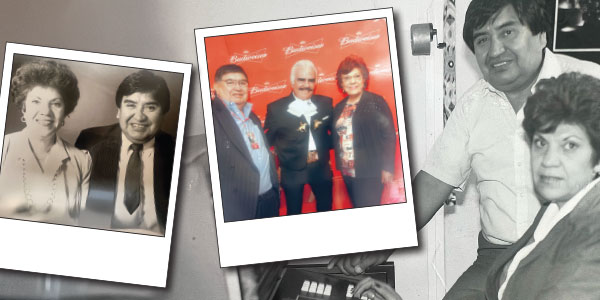
“Regla Número 1: Nunca Pierda Dinero.
“Regla Número 2: Nunca Olvide la Regla Número 1.”
– Warren Buffett
En columnas anteriores, discutimos la importancia de tener un entendimiento entre usted-y sus clientes- del por qué iniciaron su negocio. Su razón por querer ser empresario quizás sea diferente al dueño del negocio de enseguida, pero hay algo que quizás tengan en común: iniciar un negocio para hacer dinero.
En cualquier negocio, dinero en efectivo es el rey. Dinero en efectivo-y cómo fluye en su negocio es un recurso limitado que determina si su negocio ha triunfado o fracasado. Aquí hay unas maneras de cómo gastar su dinero inteligentemente y evitar perderlo.
Entienda la diferencia entre el querer y necesitar.
Cuando empiece a fijar sus metas financieras, le servirá de mucho el entender y separar costos que debe de pagar para funcionar (necesidades) y cosas con las cuales pueda continuar sin que le afecten su día a día (querer). Cosas como su licencia y permisos para su negocio, son gastos que se tienen que pagar antes de que se pague usted un sueldo de seis cifras.
Como nuevo y entusiasta dueño de negocio, hay que recordar que cada negocio inicia con deudas. Independientemente de cuánto dinero usted invierta para iniciar su negocio (la cantidad de deuda con la que inicie), cada negocio inicia con el mismo número de clientes: cero. Inicia abajo, y escala conforme su marca va creciendo.
No tenga miedo de negociar.
Una de las ventajas de comprar en pequeños negocios locales, es que uno tiene la oportunidad de negociar para obtener una mejor compra. Como dueño de un pequeño negocio, no tenga miedo de negociar con sus proveedores y colegas al tiempo de comprar una necesidad para su negocio. La respuesta siempre será “no” si no pregunta.
Hasta los mejores empresarios, tienen una fuerte red entre dueños de negocios donde intercambian servicios entre ellos. Esta es una forma de Mercadeo de Guerrilla, esa estrategia le puede ahorrar bastante dinero a la larga.
La posición financiera de un negocio es tan buena como la de la persona que la posee. Si maneja mal sus finanzas personales, es probable que asimismo manejara las de su negocio. Tómese el tiempo para ser inteligente con su dinero. Quizás sea limitado, pero si lo administra bien le puede durar muchísimo tiempo.
Setting Financial Goals
“Rule No. 1: Never lose money.
Rule No. 2: Never forget Rule No. 1.”
-Warren Buffett
In previous columns, we have stressed the importance of having a clear understanding with yourself – and your customers – as to why you want to start a business. Your reason for entering entrepreneurship will be a bit different than that of the next small business owner, but there is always one theme every new business owner should have in common: going into business to make money.
In any business, cash is king. Cash – and how it flows through your business – is a limited resource that will determine whether your business succeeds or fails. Here are ways for you to spend your money wisely, and avoid losing it.
Know the difference between your needs and wants.
When you begin your financial goal-setting journey, it helps to begin by understanding and separating costs you must pay (needs) and those you could possibly do without (wants). Items such as business licenses and permits will need to be paid before you consider paying yourself that six-figure salary.
As new and aspiring business owners, remind yourselves that every business starts off with debt. Regardless of how much money you invest into getting your business started (the amount of debt you start off with), every business begins with the same number of clients: zero. Start lean, and scale as your brand grows.
Don’t be afraid to bargain.
One of the most exciting things about shopping at a small, locally-owned business is the opportunity to bargain for a better deal. As a small business owner, do not be afraid to negotiate with your suppliers and colleagues when purchasing items needed for your business. The answer will always be “no” if you do not ask.
The best entrepreneurs even have a strong network of other business owners that will allow them to trade services amongst each other. A form of guerilla marketing, this strategy can save you from spending piles of money over the long run.
A business’s financial strength is only as good as the individual who owns it. If you manage your personal finances poorly, it is likely you will do the same with your business’s funds. Take time to be smart about your money. It’s limited, but it can take you a long way.










